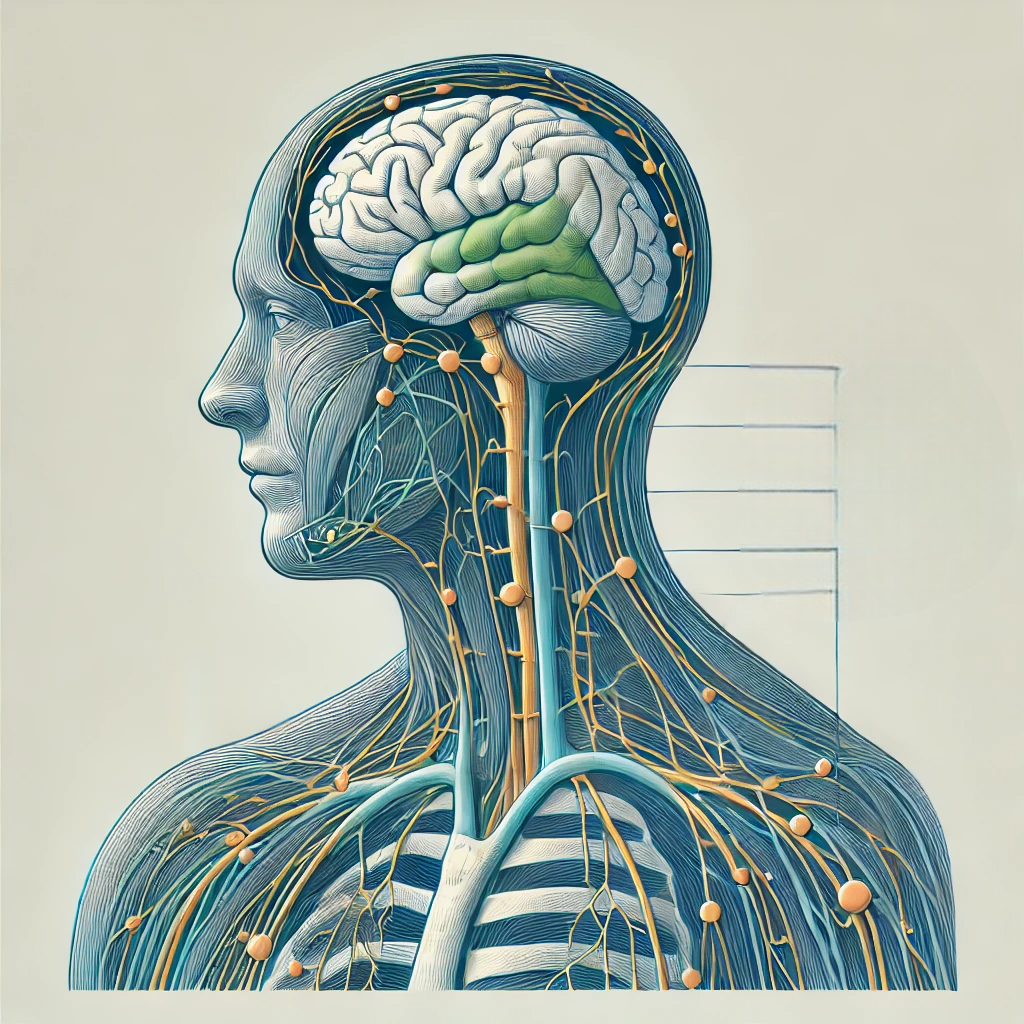Imagine waking up one day unable to control your movements or feeling numbness and tingling in your limbs. These are some of the realities faced by individuals with nervous system disorders.
Nervous system disorders encompass a range of conditions that affect the brain, spinal cord, and nerves. These disorders can have significant impacts on health, mobility, and daily functioning.
Understanding common nervous system disorders, their symptoms, and impacts is crucial for early diagnosis, effective management, and improving quality of life for affected individuals.
In this post, you’ll learn about common nervous system disorders, their symptoms, and how they impact health and daily life.
Common Disorders of the Nervous System
Parkinson’s Disease:
- Description: Parkinson’s disease is a progressive neurological disorder that affects movement control. It occurs when nerve cells in the brain that produce dopamine, a chemical that coordinates movement, become impaired or die.
- Symptoms: Common symptoms include tremors, stiffness, slowed movement, and balance problems. As the disease progresses, patients may also experience speech changes and writing difficulties.
- Impact: Daily activities such as walking, writing, and speaking can become challenging. Emotional and cognitive changes, such as depression and memory issues, may also occur.
- Example: Consider the case of John, a 65-year-old man diagnosed with Parkinson’s. Initially, John noticed a slight tremor in his right hand, which gradually worsened. He now finds it difficult to button his shirt and write legibly. With medication and physical therapy, John manages his symptoms, but the disease continues to progress.
Multiple Sclerosis (MS):
- Description: Multiple sclerosis is an autoimmune disease where the immune system attacks the protective covering of nerves (myelin), leading to communication problems between the brain and the rest of the body.
- Symptoms: Symptoms include fatigue, difficulty walking, numbness or tingling, and muscle weakness. MS can also cause vision problems, bladder issues, and cognitive changes.
- Impact: Symptoms can vary widely, affecting mobility, vision, and coordination. MS can also lead to cognitive changes and emotional challenges, making daily tasks and employment difficult.
- Example: Meet Sarah, a 30-year-old woman diagnosed with MS. She experiences periods of severe fatigue and muscle weakness that make it hard to get out of bed. Sarah manages her condition with medication, physical therapy, and lifestyle changes, but she still faces unpredictable flare-ups that impact her daily life.
Alzheimer’s Disease:
- Description: Alzheimer’s disease is a progressive neurodegenerative disease that causes memory loss, cognitive decline, and changes in behavior.
- Symptoms: Symptoms include memory loss, confusion, difficulty completing familiar tasks, and changes in behavior and personality.
- Impact: Alzheimer’s affects daily living activities such as remembering appointments, managing finances, and maintaining personal care. It also places a significant emotional and physical burden on caregivers.
- Example: Highlight the story of Mary, an 80-year-old woman with Alzheimer’s. Mary’s daughter, Lisa, cares for her full-time. Mary often forgets her daughter’s name and becomes agitated in the evenings. Lisa struggles with the emotional toll of watching her mother’s decline and balancing her caregiving responsibilities with her own family.
Epilepsy:
- Description: Epilepsy is a neurological disorder characterized by recurrent seizures caused by abnormal electrical activity in the brain.
- Symptoms: Seizures can vary from brief episodes of staring (absence seizures) to prolonged convulsions (tonic-clonic seizures). Other symptoms may include temporary confusion, uncontrollable jerking movements, and loss of consciousness.
- Impact: Seizures can disrupt daily activities, lead to injuries, and affect mental health. Managing epilepsy often involves medication, lifestyle adjustments, and in some cases, surgery.
- Example: Provide a profile of Tom, a teenager with epilepsy. Tom has frequent absence seizures that interrupt his schoolwork and social life. He takes medication to control his seizures, but he still experiences occasional episodes. Tom and his family work closely with his neurologist to manage his condition and maintain his quality of life.
Symptoms and Impacts on Health and Daily Life
Symptoms:
- Overview: Discuss common symptoms across various nervous system disorders, such as motor issues (tremors, weakness), sensory disturbances (numbness, tingling), cognitive changes (memory loss, confusion), and emotional effects (depression, anxiety).
- Data and Statistics: Include data on the prevalence of these symptoms among individuals with nervous system disorders. For example, approximately 60,000 Americans are diagnosed with Parkinson’s disease each year, and about 2.3 million people worldwide have MS.
Impacts on Health:
- Physical Health: Explain how these disorders can affect mobility, coordination, and overall physical health. For instance, individuals with Parkinson’s may struggle with balance, leading to falls and injuries.
- Mental Health: Discuss the psychological impact, including anxiety, depression, and cognitive decline. The emotional burden of managing a chronic condition can significantly affect mental well-being.
Impacts on Daily Life:
- Daily Activities: Describe how nervous system disorders can make everyday tasks challenging, from dressing and eating to working and socializing. For example, someone with MS may find it difficult to walk or drive, limiting their independence.
- Quality of Life: Highlight the broader impact on quality of life, including social interactions, independence, and emotional well-being. Emphasize the importance of support networks and resources for affected individuals and their families.
Recap the common nervous system disorders discussed, their symptoms, and their impacts on health and daily life.

